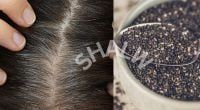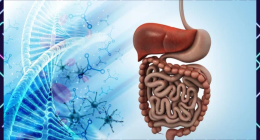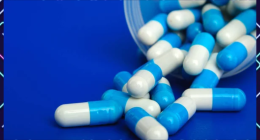Does Drinking Water Make You Wetter During Intimacy? – When it comes to intimacy, the term “wetness” can mean a lot of different things. In general, wetness during intimacy is a good thing – it means that you’re aroused and your body is preparing for sex.
There are a few different types of wetness that can occur during intimacy: vaginal lubrication, cervical fluid, and clitoral arousal fluid. Each of these types of wetness serves a different purpose.
Vaginal lubrication is produced by the glands in the vagina and helps to reduce friction during sex. Cervical fluid is produced by the cervix and changes in consistency throughout the menstrual cycle. Clitoral arousal fluid is produced by the Skene’s glands near the clitoris and can increase pleasure during sex.
Drinking water does not directly affect any of these types of wetness. However, staying hydrated is important for overall health and well-being, which may indirectly impact your level of wetness during intimacy.
What Science Has to Say About the Effects of Drinking Water on Wetness
It’s a common belief that drinking water will make you wetter during intimacy, but is there any scientific evidence to support this claim?
A quick search of the medical literature shows that there is no scientific evidence to support the claim that drinking water makes you wetter during intimacy. However, there are a few small studies that suggest that drinking water may have some benefits for sexual health.
In one study, 30 women were asked to drink 1.5 liters of water per day for two weeks and then report on their sexual function. The results showed that those who drank more water had significantly higher levels of sexual desire and arousal than those who didn’t drink as much water (1).
Another study looked at the effect of dehydration on sexual function in men. The results showed that men who were dehydrated had lower levels of testosterone and were more likely to experience erectile dysfunction (2). While these studies don’t directly show that drinking water will make you wetter during sex, they do suggest that it could have some positive effects on sexual health.
So, if you’re looking for a way to improve your sexual health, adding more water to your diet might be a good place to start!
How Much Water Should You Drink for Optimal Results?
We’ve all heard that we should drink eight glasses of water a day, but is there any truth to the claim that water can improve our sexual performance? Let’s take a look at the science behind this claim to see if there’s any merit to it.
The first thing to understand is that dehydration can lead to lower levels of lubrication in the vagina, which can make sex less pleasurable. In one study, women who were dehydrated had significantly less vaginal lubrication than those who were properly hydrated.
So, it stands to reason that if dehydration can lead to dryness, then rehydrating should help. And indeed, many women report that drinking water does help them get wetter during sex.
One theory is that when you drink water, it increases blood flow to your genitals, which in turn increases arousal and lubrication. Another possibility is that water helps flush out any debris or bacteria that might be causing vaginal dryness. Either way, it seems clear that staying hydrated is important for sexual health.
So how much water should you drink for optimal results? While there’s no hard and fast rule, aim for eight glasses of water a day, and drink even more if you’re sweating or urinating frequently. And if you’re having trouble getting wet during sex, don’t hesitate to reach for a bottle of water – it just might do the trick!
Other Causes of Wetness During Intimacy
There are a few other things that can cause wetness during intimacy, aside from drinking water. One is arousal fluid, which is different from lubrication. Arousal fluid is produced by the Skene’s glands, which are located near the urethra. This fluid can seep out during sexual arousal or penetration, and it’s often clear or white in color.
Another potential cause of wetness during sex is sweat. Yes, you read that correctly – sweat. While sweating during sex isn’t exactly sexy, it can happen, especially if you’re getting worked up and hot under the collar (literally). So if you find yourself getting a little sweaty down there during sex, don’t fret – it’s perfectly normal.
Last but not least, one other potential cause of wetness during intercourse is vaginal discharge. This is different from arousal fluid, as it’s produced by the cervix and not the Skene’s glands. Vaginal discharge can vary in color and consistency throughout your menstrual cycle, but it’s usually quite thin and clear or white in color. If you notice an increase in vaginal discharge around the time of intercourse, it could be due to hormonal changes or sexual arousal.
Tips to Increase Your Natural Lubrication
1. Drink lots of water: This is the most obvious tip, but it’s also the most important one. Drinking plenty of water will help to keep your body hydrated, which in turn will increase natural lubrication.
2. Eat a healthy diet: Eating a diet that is rich in healthy fats and oils can help to increase natural lubrication. Foods such as avocados, nuts, and seeds are all good choices.
3. Avoid harsh soaps and detergents: These can strip away the natural oils in your skin, which can lead to dryness and reduced lubrication. Choose gentle, unscented products instead.
4. Use a humidifier: If you live in a dry climate or tend to have dry skin, using a humidifier can help to keep your body moist and reduce vaginal dryness.
5. Stay aroused: When you’re aroused, your body produces more lubrication. So if you’re having trouble getting wet during sex, try focusing on getting yourself aroused first. foreplay or watching erotic videos can be helpful here.
Conclusion
In conclusion, drinking water can help make you wetter during intimacy. It is important to remember that everyone’s body chemistry is different and what works for one person may not work for another. Therefore it is best to experiment with different methods in order to find out what works best for you and your partner. If none of these suggestions provide the desired result, then it might be worth consulting a medical professional about other options. Regardless of how you choose to tackle this issue, we hope that this article has helped shed some light on the topic of making yourself more lubricated during intercourse. Go To Home For More









